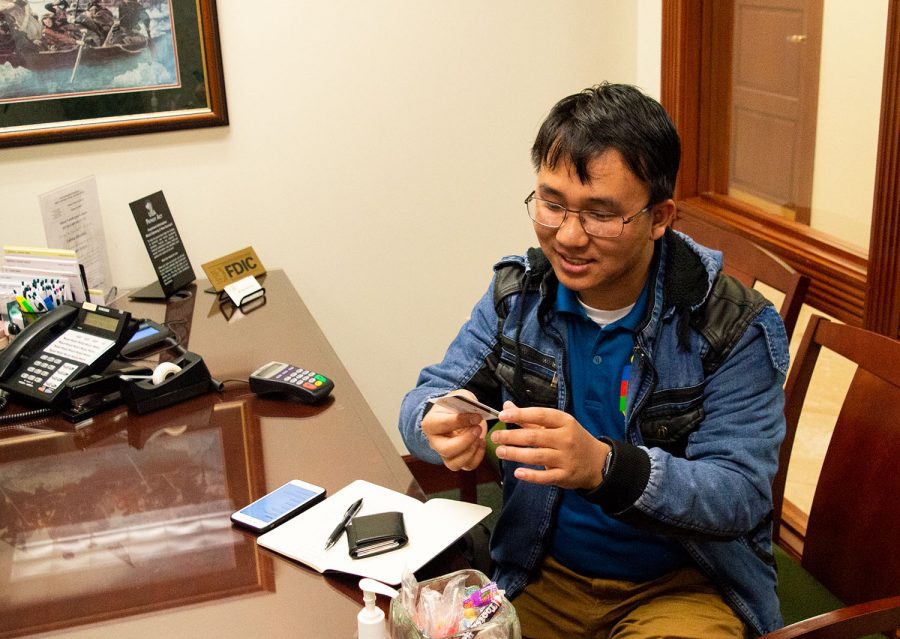Three tips for financial success
November 27, 2018
Figuring out your finances while balancing school, work and activities can be tricky. Luckily, places like Independence Bank want to make it easier.
President of Independence Bank in Bowling Green Brad Howard worked his way up in the banking industry after starting off as a bookkeeper. Howard said the biggest issue he sees with college students managing finances is the impact of student loans. For example, when graduates apply for a home loan with $40,000-$300,000 of outstanding student loans, it’s difficult for them to qualify for another loan.
Howard said education is the most important tool students have when making decisions about the amount of money to borrow, how often to borrow and what to spend that money on. He explained some students obtain loans not only for school but for their basic needs as well. But that creates a snowball effect that increases the amount of the loans exponentially.
“Instead of getting enough money for their rent, their food, and everything to sustain themselves, student loans should be for tuition, books and things of that nature,” Howard said. “Students may consider a paid internship or part-time job to help supplement their basic needs outside of the school-related necessities. Independence Bank has employed many students over the years that have used the money they earn for living expenses as well as paying down their student loan amounts at the same time. When they graduated, they do not have the large student loan balances that may affect their future financial situation negatively.”
Howard said that students need to start learning how to save and budget early on. He gave three tips for how students can take control of their finances and start planning for a successful future.
- Seek advice.
Start asking financial questions early. Howard recommends taking advantage of campus resources for financial guidance as well as career counseling. He also recommends students talk to their parents about budgeting and learning how much they spend on things like insurance, cars and other debts. It is important to understand what future expenses can be like. “It’s common for students not to ask questions and for parents not to talk about it,” Howard said. Howard explained that he has always been open with his kids about finances and the reality of the future choices they will have to make.
- Plan your career.
Howard suggests students find a mentor in their desired career field. Ask questions about what that mentor enjoys the most and the least about their job, as well as the benefits, expected hours and income range. This may allow students to determine if that career is what they want to pursue, or it could possibly change their course before they invest too much time and money in that field of study. Finding a mentor or an internship program will provide students with employable skills and experience. Gaining experience is important, as many employers require applicants to have some sort of experience within their field of study.
- Live within your means.
Howard explained the “old” rule of thumb is spending 40-45 percent of your net income on basic needs such as rent, food and utilities. No more than 30-35 percent should be spent on making payments on loans, credit cards or any other types of obligations. He recommends putting at least 10 percent of your remaining income into savings. Independence Bank has staff that discuss budgeting with many individuals as they look to qualify for financing large purchases like automobiles and homes. “It’s important to learn the difference between a need and a want when making a large purchase,” Howard said.













